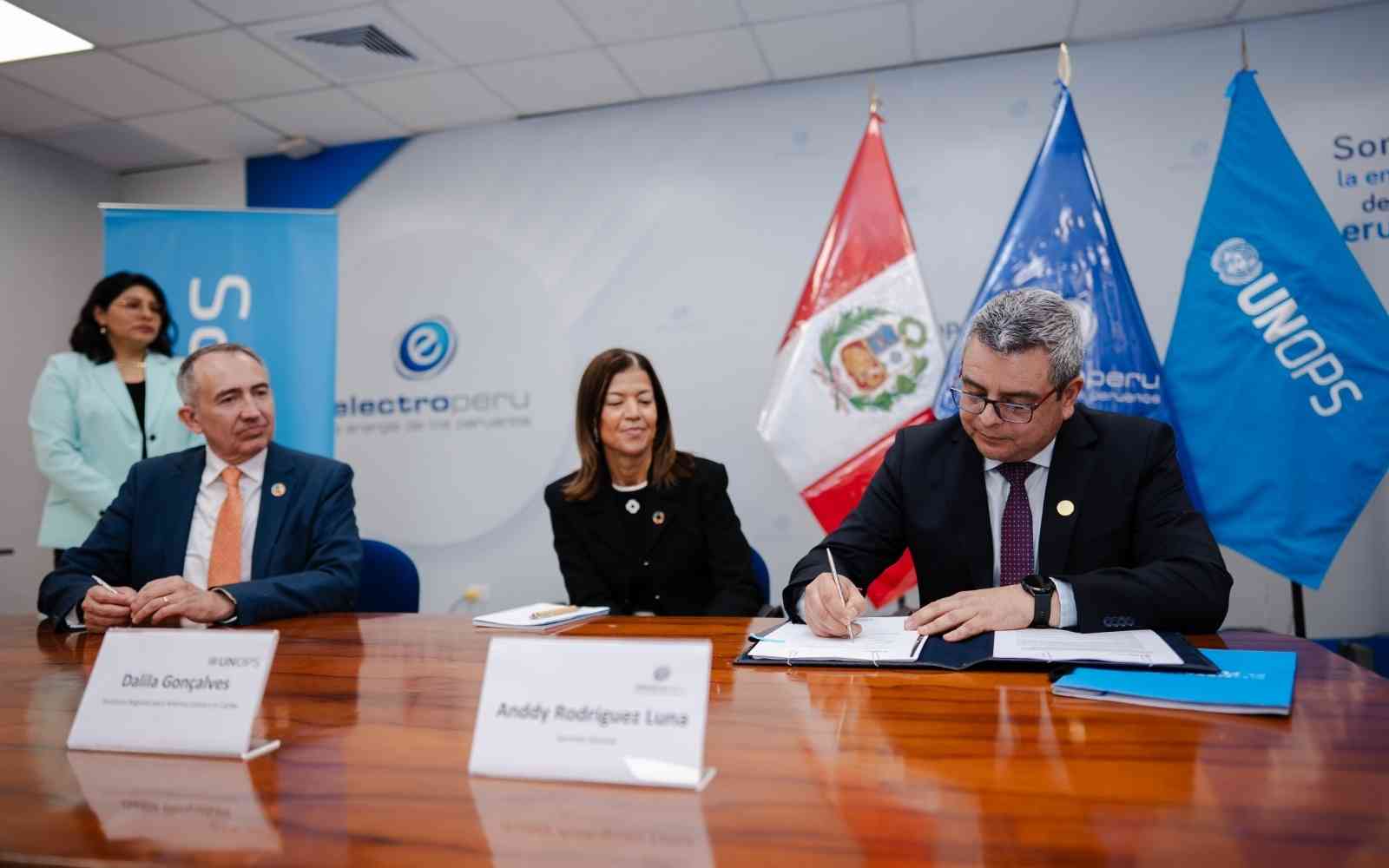The United Nations Office for Project Services (UNOPS)
From spend to impact: Leveraging public procurement for a sustainable future
Keynote address by Jorge Moreira da Silva, UN Under-Secretary-General and UNOPS Executive Director, at FfD4 side-event: 'From spend to impact: Leveraging public procurement for a sustainable future,' 4th International Conference on Financing for Development, 1 July 2025.
[Check against delivery]
Distinguished delegates and esteemed colleagues,
Thank you for joining us at this important side event to highlight the critical role that public procurement can play in the achievement of the Sustainable Development Goals.
At #FfD4, we are joining our partners to spotlight how smarter, more sustainable procurement can stretch public spending, fight corruption, and accelerate a just transition in #ClimateAction.
— UNOPS (@UNOPS) July 1, 2025
More info 👉 https://t.co/GI5J1aCQRI │ #FinancingOurFuture pic.twitter.com/pbBvNyKAHs
This is a subject that is not only central to our mandate at UNOPS, but also key to conversations we are having at the financing for development conference.
The challenges hindering the urgently needed investment push for the SDGs are many and affect how countries access finance at various levels—whether through Official Development Assistance (ODA), loans, debt relief, climate finance, or other mechanisms.
Yet, all these mechanisms have one thing in common: public procurement will be the key to realizing their impact.
The outcome document of the conference acknowledges this role - by highlighting the role that procurement plays in promoting transparency and accountability, as well as the role of national procurement in strengthening development cooperation.
***
Public procurement is key to the global effort to build a more sustainable, equitable, and resilient future.
Yet often it does not deserve the recognition it deserves. We tend to think of procurement as a technical, bureaucratic process.
But the sheer scale of procurement highlights the transformative role that it can play:
Overall, public procurement accounts for 15-20 per cent of global GDP.
By one account, public procurement activities are directly or indirectly responsible for 15 per cent of global greenhouse gas (GHG) emissions.
For comparison, this is seven times the amount emitted by the entire aviation industry.
How governments spend their money matters immensely.
Public purchasing has immense potential to reduce emissions, promote sustainability and build resilience.
It can create local jobs and support local economies
It can promote equality and social inclusion - by encouraging women-led businesses, local suppliers, and SMEs to bid.
It can cut waste, fight corruption and promote transparency
It can drive innovation - including from the private sector
And it can make supply chains more resilient.
In short, improved public procurement processes can make money work harder and achieve more for communities, which is the ultimate goal.
Importantly - in an era of diminishing public trust in institutions, I would argue that effective and efficient public procurement rebuilds trust, and inspires hope.
Let me share some examples.
In Brazil, a government project to provide healthy food to students in public schools is aiming for food security, better learning, and good eating habits. As a decentralised programme, it has created a public market for local family farmers and taken positive steps to fight rural poverty.
In the Netherlands, where the government has set the target of achieving a fully circular economy by 2050, the ambition is to work with all public authorities to save 1 megaton of CO2 through circular procurement. In one example, they are building a viaduct from reusable components.
Of course - I have many examples to share from our own work at UNOPS too.
As you know, procurement is a cornerstone of our mandate, enabling us to support partners in the delivery of critical infrastructure, essential services and humanitarian aid.
Last year, we procured $1.7 billion worth of goods on behalf of our partners.
In addition to carrying direct procurement, we also provide technical assistance for complex procurement processes, where we support partners to reduce bottlenecks, improve efficiency of their procurement process, and help identify, reduce, and mitigate supply chain-related risks.
Around half of our procurement is from local suppliers, which can help lessen environmental impacts by reducing emissions and directly support local economies.
In Ukraine, for example, last year, over 90 per cent of our contracts were with Ukrainian suppliers, helping us make our supply chains more resilient, while empowering the local private sector in the face of conflict.
Whether we are procuring on behalf of our partners, or working with them to strengthen national capacity for procurement, our focus is on ensuring that procurement processes benefit local communities, build more resilience and accelerate the shift to low-carbon economies.
Similarly - we place great emphasis on involving Small and Medium Enterprises and women-led SMEs in our procurement practices - because we know they play a critical role in economic growth and development.
One example of our procurement support is in Ecuador, where we are working with the government to promote sustainable public transport.
In partnership with the Municipal Public Passenger Transport Company of Quito, we are procuring 60 new electric trolleybuses. These will help to reduce air pollution and greenhouse gas emissions from the public transportation network and improve urban mobility in the capital – all while supporting Ecuador’s commitments to advancing climate action and sustainable development.
How we have procured is as important as what we have procured.
Disability - and gender- inclusive considerations have been integrated into the vehicles. So that wheelchairs, baby strollers and bikes are welcome on board. The trolleybuses have regenerative braking, which reduces energy consumption by up to 30 per cent.
And importantly, through efficient and transparent procurement as part of this partnership, we saved money, which allowed the Municipality to have additional funds to continue to improve the citizens' lives.
All that to say - at UNOPS we are committed to help our partners realise the potential of public procurement to drive sustainable development.
We embed sustainability in every stage of our procurement process.
We have high standards to ensure inclusion, transparency and accountability.
And we are committed to building the capacity of governments and institutions to lead this transformation
***
As we look to the future, it is crucial that we rethink how we define value in sustainable public procurement.
It is about considering the full life cycle of a good or service: its environmental footprint, its social impact, and its long-term economic value.
Transitioning to more sustainable products and services, for example, may carry a short term premium for governments, we know that the increased cost will decline over time. Similarly, as new technologies are scaled up, production processes for net-zero products will become more cost-efficient.
Sustainable public procurement is also about caring deeply about building lasting capacity in procurement reform. Particularly in developing countries, we need to work more closely together to enhance capacity and support the efforts of governments to strengthen institutions.
And finally, emerging technologies, such as e-procurement, AI-driven contract management can play a key role in enhancing transparency and efficiency, and ensuring funds are better utilized.
***
At its heart, public procurement is not about contracts or spreadsheets. It is about people.
It is about using the power of public spending to shape the kind of world we want to live in - and the kind of world we want to leave behind.
A world that is more just, inclusive, and sustainable.
UNOPS is committed to this vision.
Thank you.










